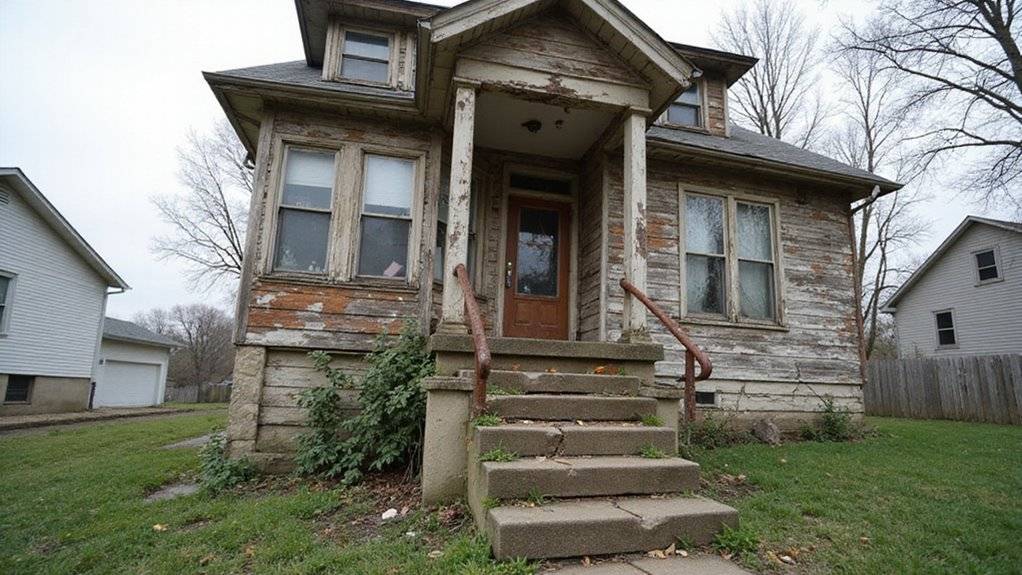Selling a house in Missouri with code violations can be confusing and stressful. Many homeowners fear that these problems will stop a sale. Buyers and agents may also hesitate to get involved with a home that has issues.
These violations can lower your home’s value and scare off potential buyers. You may worry about legal trouble or delays in closing. The entire process can feel overwhelming if you are not sure what steps to take.
Yes, you can sell a house with code violations in Missouri, but you need to handle the process carefully. You must understand the rules, be honest with buyers, and protect your interests during negotiations. This blog will show you how to manage these challenges and sell your home successfully.
Key Takeaways
- Yes, you can sell a house with code violations in Missouri, but you must disclose all known issues to potential buyers.
- Selling as-is is allowed, but full disclosure of code violations is legally required even if no repairs are made.
- Code violations may reduce your home’s value and limit your pool of interested buyers, especially among traditional buyers needing financing.
- Serious violations can delay or complicate closing, as buyers or lenders may require repairs or price reductions before proceeding.
- Working with experienced real estate professionals and providing inspection reports can help ensure a smoother sale despite existing violations.
Understanding Code Violations in Missouri
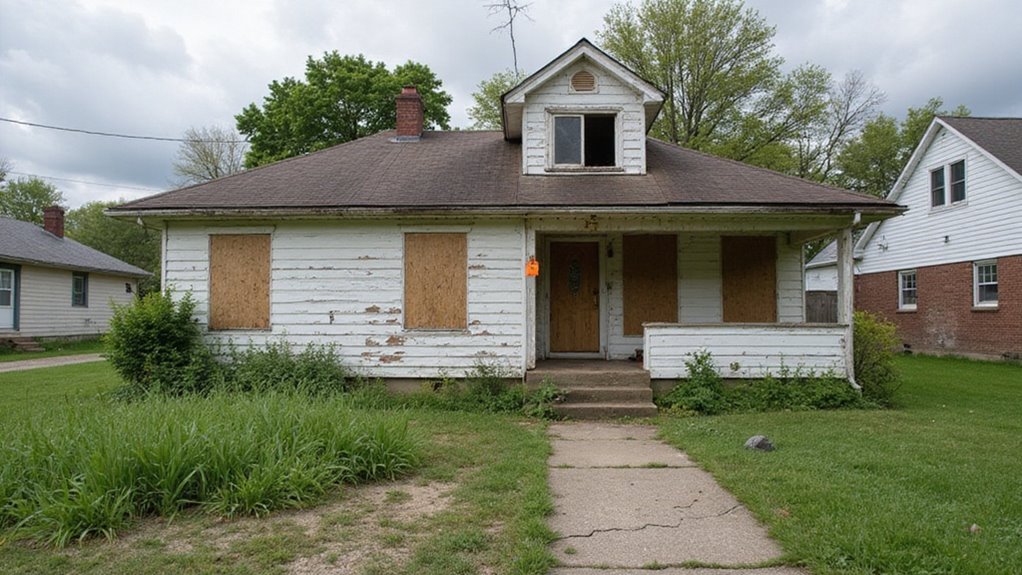
Code violations in Missouri are problems that break local building or safety rules. These can make selling your house harder. If your home has code violations, you may face delays, fines, or legal issues.
Most violations happen from poor maintenance or unapproved changes. Not getting proper permits for renovations is also a common reason. If buyers or inspectors find these issues, they may request repairs or lower their offer.
In many cases, cash buyers purchase homes in any condition, making it possible to sell without worrying about repairs. Common code violations include poor maintenance, unapproved changes, or missing permits—issues that often lead buyers to request repairs or lower offers.
Check city or county codes before listing your house. Review permits for any work you have done. If you find problems, fix them early to avoid bigger issues later.
Unresolved violations can scare away buyers or reduce your home’s value. Proactive management helps you sell faster and get a better price. Always address code issues quickly for a smoother sale.
If you need to sell a house with code violations, consider working with a trusted cash home buyer who can purchase houses as-is and guide you through a fast, effortless process.
Common Types of Code Violations in Missouri Homes
Missouri homes often have common code violations that sellers should know. These issues usually appear during a home inspection. If you address them early, selling your home can be easier.
Common violations include electrical hazards like old wiring or missing GFCI outlets. Plumbing problems such as leaks or low water pressure are also frequent. Roof damage and structural issues, like cracks or unsafe stairs, are other examples. For sellers who want a fast, effortless process, working with local cash buyers can help them avoid the hassles of making repairs and meeting code on their own.
If you find these problems before listing your home, you can fix them in advance. Buyers may feel more confident if your home meets code. Proactive maintenance and inspections help prevent delays in the selling process. In some cases, it may be more practical to consider selling a house as-is if repairs are too costly or time-consuming.
How Code Violations Impact Home Value
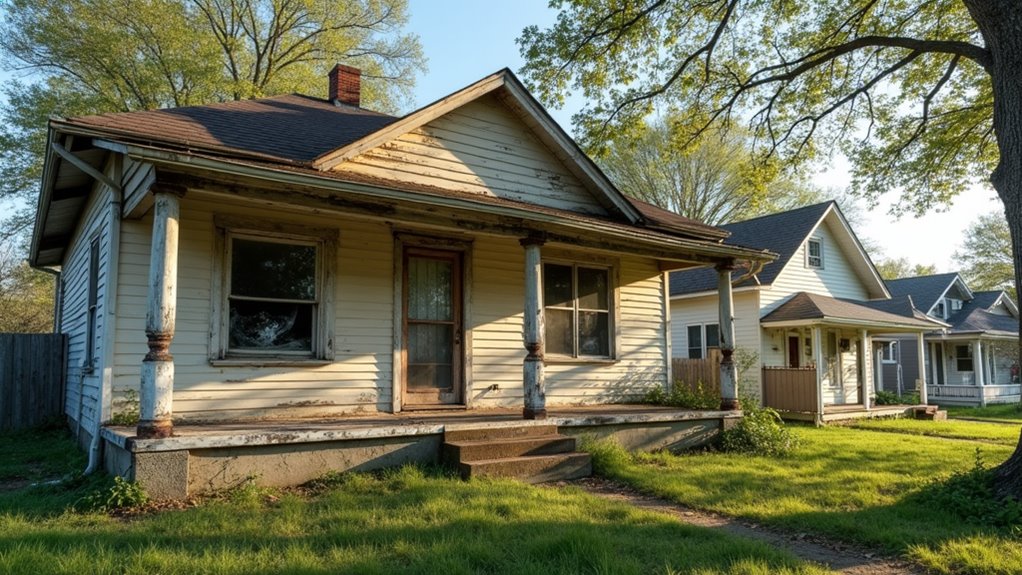
Code violations can lower your home’s value. Buyers often see violations as warning signs and may offer less money. Serious issues, like bad wiring or structural problems, make your house harder to sell. If you do not fix these problems, buyers will expect discounts. Renovation costs can add up, and most buyers do not want extra work. Investors or cash buyers may be your only option, and they usually pay less.
Addressing violations before selling increases your home’s appeal. For properties with undisclosed mold issues, failure to provide proper disclosure can result in legal responsibility and lawsuits. Fixing issues gives you more control during negotiations. If you want a higher price, make sure your home meets code requirements. In some cases, homes with undisclosed hazards like asbestos or other code violations can even lead to legal penalties if not properly addressed before the sale.
Legal Obligations for Sellers Regarding Code Violations
Missouri law requires you to tell buyers about any known code violations. Sellers must share issues from poor renovations or lack of maintenance. Failure to do this can lead to lawsuits or fines.
If you have renovated recently, confirm all work had proper permits and inspections. Unpermitted work may cost buyers more to fix later. Proper documentation can prevent future problems. You should be aware that contract terms may also impact your ability to sell if the property is currently under a land contract.
You should fix code violations or tell buyers about them honestly. This can help build trust and make the sale go smoothly. Consult a real estate attorney if you are unsure about your legal duties.
If you want to avoid the hassle of repairs and inspections, you can consider selling your house as-is for cash to a trusted local buyer, who will handle code violations and buy the property in its current condition.
Disclosure Requirements Under Missouri Law
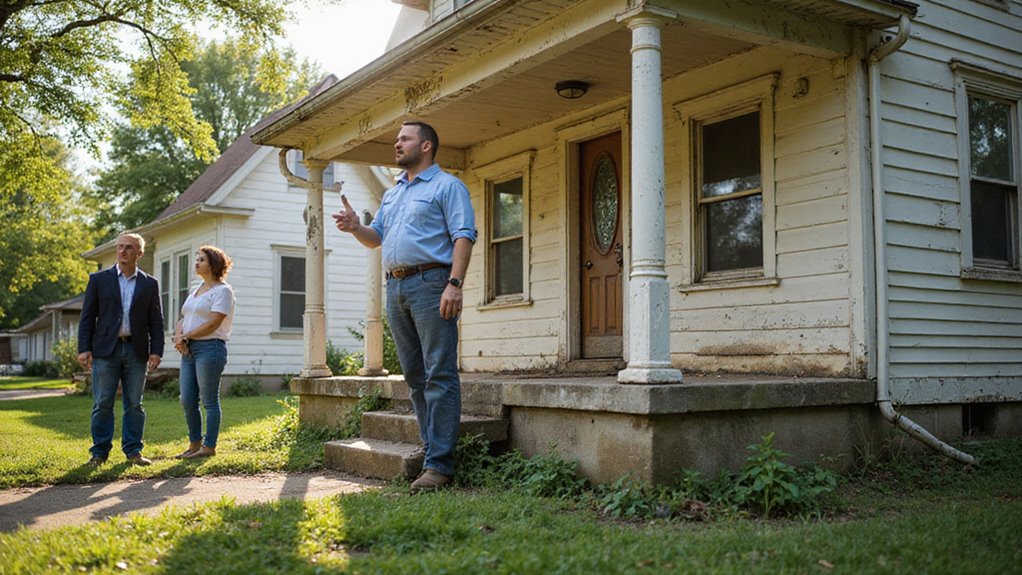
When selling a house in Missouri, you must complete specific disclosure forms that address known code violations. Failing to disclose these issues can expose you to serious legal and financial penalties. You’ll want to understand exactly what the state requires so you can protect yourself throughout the transaction.
If you’re concerned about repairs or paperwork, you might consider working with local investors who buy houses as-is to simplify the process and avoid additional complications. Additionally, if you are selling a property that has been your primary residence, you may qualify for capital gains tax exclusions on any profits from the sale, provided you meet the residency and ownership requirements.
Required Seller Disclosure Forms
Missouri law says sellers must disclose known material defects in their home. This includes any building code violations. You must give this information before selling the property.
The Missouri Seller’s Disclosure Statement asks about structural problems and zoning issues. You should list all known violations, even small ones. Buyers and their lenders will check these details.
If you hide or forget to mention problems, the sale could fail later. Buyers may also have trouble getting insurance or a loan. Full honesty protects you from future legal issues.
You should review disclosure forms carefully. If needed, ask your real estate agent for help. Always include documents that support your disclosures.
Penalties for Non-Disclosure
Not disclosing known code violations can lead to legal and financial trouble in Missouri. If you hide issues like unpermitted work, the buyer may sue you. Courts can order you to pay for repairs, legal costs, or lower the sale price.
A home warranty does not protect you if you knowingly hide violations. If a buyer discovers withheld information, you could face fraud charges. Fraud can result in even harsher penalties.
If you are unsure whether to disclose something, it is safer to share all known problems. Always tell buyers about any code violations, missing permits, or non-compliant renovations. Full disclosure helps you avoid disputes and protects you from liability.
Selling As-Is: What Does It Mean?
When you sell a house “as-is” in Missouri, you’re offering the property in its current condition without agreeing to make repairs. This approach limits your responsibility for fixing code violations, but buyers will expect full disclosure of known issues. Understanding the legal and financial implications helps you avoid disputes and price your home appropriately.
Many sellers in North County, MO appreciate that selling as-is means you can avoid real estate agents and commissions when working with a local cash buyer. You can also benefit from a fast, effortless process that skips repairs and unnecessary costs, making the sale much simpler.
Definition of As-Is
“As-is” means you are selling a property in its current condition. The seller will not make any repairs before closing. Buyers must accept the home with all its flaws.
Buyers can inspect the property before purchase. If issues are found, the seller does not have to fix them. This includes cosmetic problems and serious code violations.
Missouri law still requires sellers to reveal known defects. If a seller hides problems, they could face legal trouble. Selling as-is does not remove this responsibility.
Buyers should consider repair costs in their offer. They must understand that they are accepting the home as it stands. This approach sets clear expectations for both parties.
Implications for Sellers
Selling your Missouri home as-is means buyers will see every problem, big or small. You will not need to make repairs, but you might get lower offers. Some buyers may walk away if safety or habitability is a concern.
If your home has code violations, fewer buyers may be interested. Lenders and insurers could refuse to work with buyers if serious issues exist. This can make it harder for buyers to get a mortgage or insurance.
You must tell buyers about any problems you know about. If you are not transparent, you could face legal trouble later. Being honest helps prevent disputes after the sale.
Here are some possible effects of selling as-is:
| Implication | Practical Impact |
|---|---|
| Lower sale price | Buyers reduce offers for repairs |
| Smaller buyer pool | Fewer buyers accept code violations |
| Disclosure required | Must report known problems |
| Insurance difficulties | Buyers may struggle to get insurance |
Benefits and Risks of Selling a House As-Is
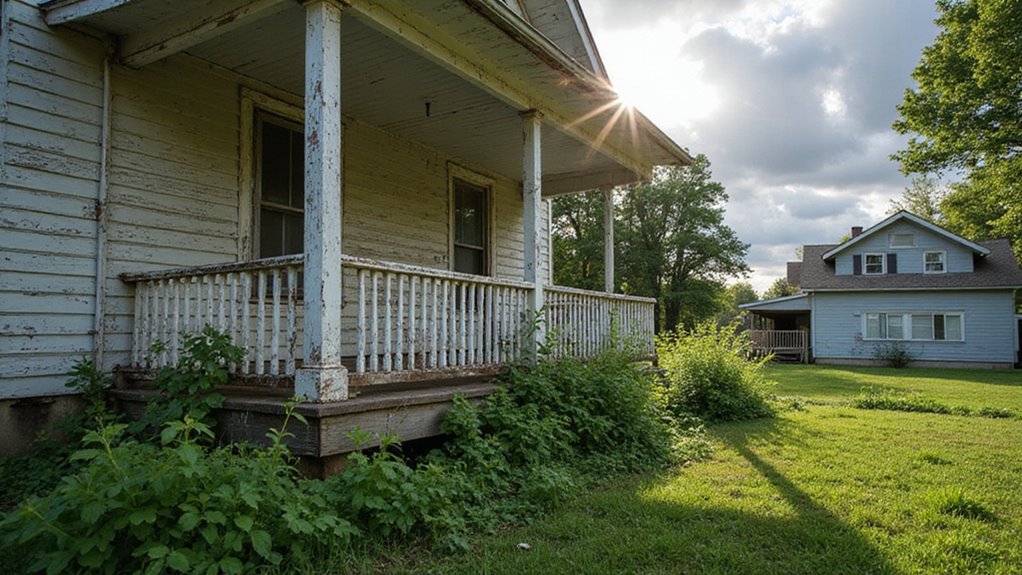
Selling a house as-is in Missouri has both benefits and risks. It can help you avoid repairs and sell faster, especially with code violations. However, buyers may offer less, and you must disclose any violations.
If you sell quickly, you can stop paying property taxes sooner. Unresolved code violations can make buyers worry about safety in the area. This can make your home harder to sell. Choosing a fair cash offer from a local buyer can help you avoid the hassle of making repairs and speed up the entire process.
You should think about your financial needs before selling as-is. If you are willing to lower your price and negotiate, this option may suit you. Always consider the impact on your neighborhood and follow all legal rules.
A key benefit of selling as-is is that you can work with local home buyers who offer fair cash prices and handle all the paperwork, making the process faster and simpler for you.
Working With Real Estate Agents Familiar With Code Issues
You need an agent who’s handled properties with code violations and understands the unique challenges they bring. An experienced agent will help you comply with Missouri’s strict disclosure requirements, protecting you from legal trouble.
Rely on their guidance to market your house effectively and negotiate with buyers who expect full transparency. Additionally, some sellers in Missouri choose the stress-free selling approach of cash buyers who purchase homes as-is, eliminating the need for repairs or code compliance before closing.
Agent Experience With Violations
Partnering with an agent experienced with code violations can help you sell your home more easily. Such an agent knows how to handle these problems and make your property more appealing to buyers. If you want to reduce buyer concerns, working with an expert is important.
The agent can market your home by focusing on its potential for improvements. They may recommend home staging to highlight strengths and hide minor issues. If you need to set the right price, they will suggest ways to attract serious buyers.
An experienced agent brings several benefits. They know which marketing messages work best for homes with code issues. If you want the best results, choose an agent who has handled similar sales before.
Navigating Disclosure Requirements
Missouri law says sellers must share known material defects. If your home has code violations, you must also disclose these issues. Honest disclosure is important because it can affect the buyer’s decision and property taxes.
A real estate agent with experience in code violations can help you. The agent will guide you through the required forms. If you have questions, the agent can explain what you need to share.
Buyers care about code violations, tax changes, and inspection results. Any required repairs can also affect the sale timeline. If you work with specialists, you are more likely to follow the rules and avoid problems.
Marketing a Property With Code Violations
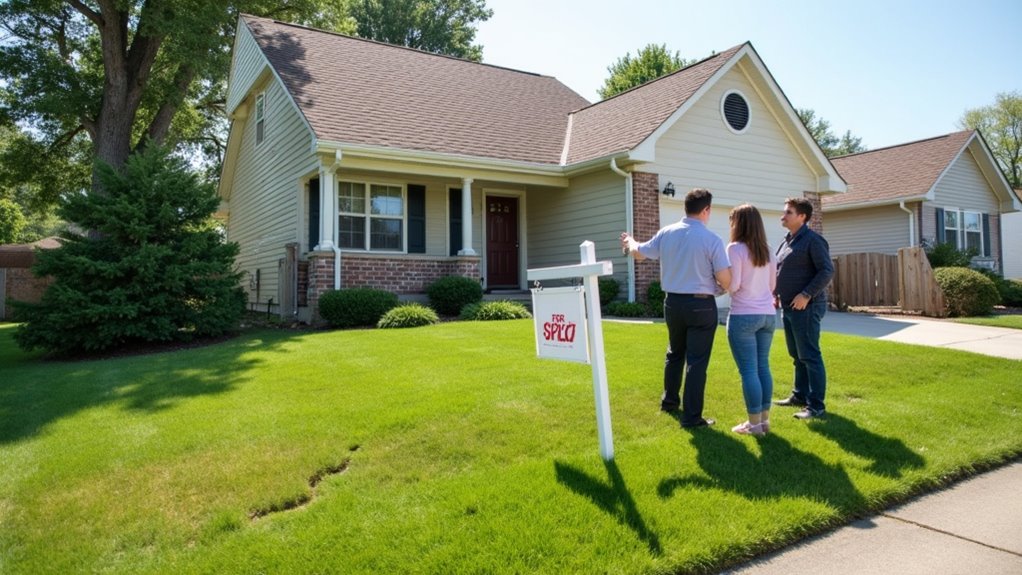
To market a property with code violations in Missouri, target buyers who accept homes needing repairs. Clearly share all known issues from the start. This helps set the right expectations.
A professional home inspection shows exactly what repairs are needed. If you disclose these findings, buyers will trust your listing more. Adjust your price to reflect repair costs and current market trends.
Highlight the property’s strengths, like its location or potential for improvement. If you focus on investors or buyers wanting a project, you may sell faster. Honest marketing attracts the right audience for your property.
Negotiating With Buyers When Violations Exist
When a property has code violations, you need a plan to negotiate with buyers. Always tell buyers about any violations right away. Show them city notices or inspection reports to prove you are honest.
Buyers may want a lower price to cover future repair costs. You can offer a credit for closing costs or add a home warranty. If buyers ask you to set money aside for repairs, check if your local rules require it.
Set your lowest acceptable price based on the property’s as-is value. Support your price with local sales data and market research. You should be ready to explain your terms clearly.
Options for Repairing or Remediating Violations
If your property has code violations, you must decide whether to fix them or leave them for the buyer. Fixing violations can help your sale and make mortgage approval easier. Leaving issues unresolved may limit your pool of buyers.
You can make simple repairs yourself to save money. Licensed contractors are best for big or safety-related problems. Professional work ensures your repairs meet local building codes.
If you prefer, you can offer buyers a repair credit or lower your price. This lets the new owner handle the repairs after closing. Choose the option that fits your budget and timeline.
Selling to Real Estate Investors or Cash Buyers
Real estate investors and cash buyers often buy homes with code violations. These buyers usually have money and skills to fix problems fast. If you want a quick sale, they are a good choice.
Selling to an investor lets you skip repairs and long bank approval times. You can avoid deals falling through or extra waiting. Cash buyers also close faster, which saves you money on taxes and insurance.
If you have code violations, always tell buyers about them. Honest information builds trust and helps the sale move quickly. You can often sell your home “as-is” without making costly updates.
Navigating Inspections and Appraisals With Code Violations
Selling a house with code violations in Missouri can make inspections and appraisals more difficult. These challenges may affect how quickly you sell and how much money you get. Buyers and lenders often pay close attention to code issues.
Home inspectors report problems with safety, structure, or zoning. If they find major violations, the sale may be delayed until repairs are made. Some buyers may even walk away if the violations are serious.
Appraisers may lower your home’s value if code violations are not fixed. This can reduce your sale price and your profit. If problems remain, lenders might not approve the buyer’s loan.
Local authorities could also change your property tax if violations affect your home’s legal use. This could raise your taxes or change your home’s classification. You might need to fix these issues before closing.
Steps to Ensure a Smooth Transaction Despite Violations
You can still sell your home, even if it has code violations. Take clear steps to keep the process smooth and avoid problems. Disclose all known violations to buyers so they are not surprised later.
If you provide repair estimates, buyers will know the potential costs. Settle any unpaid property taxes because they can delay or stop the sale. Check if your home meets local zoning rules to avoid legal trouble.
A good real estate agent can guide you through each step. These actions make the sale process less stressful. If you follow these steps, you can feel more confident and secure about your home sale.
Conclusion
If you want to sell a house with code violations in Missouri, you must be open about all known issues. If you choose to disclose problems and consider repairs, you can avoid legal trouble. If you work with professionals, you will have more support throughout the sale.
If you need a fast and simple solution, you can sell your house for cash. We buy houses in any condition, including those with code violations. If you want to avoid repairs and long waits, a cash sale is a good option.
If you are ready to move forward, Freedom Path Investors can help you sell quickly and easily. If you reach out to us, we will give you a fair cash offer. If you want to sell your house hassle-free, contact Freedom Path Investors today.

